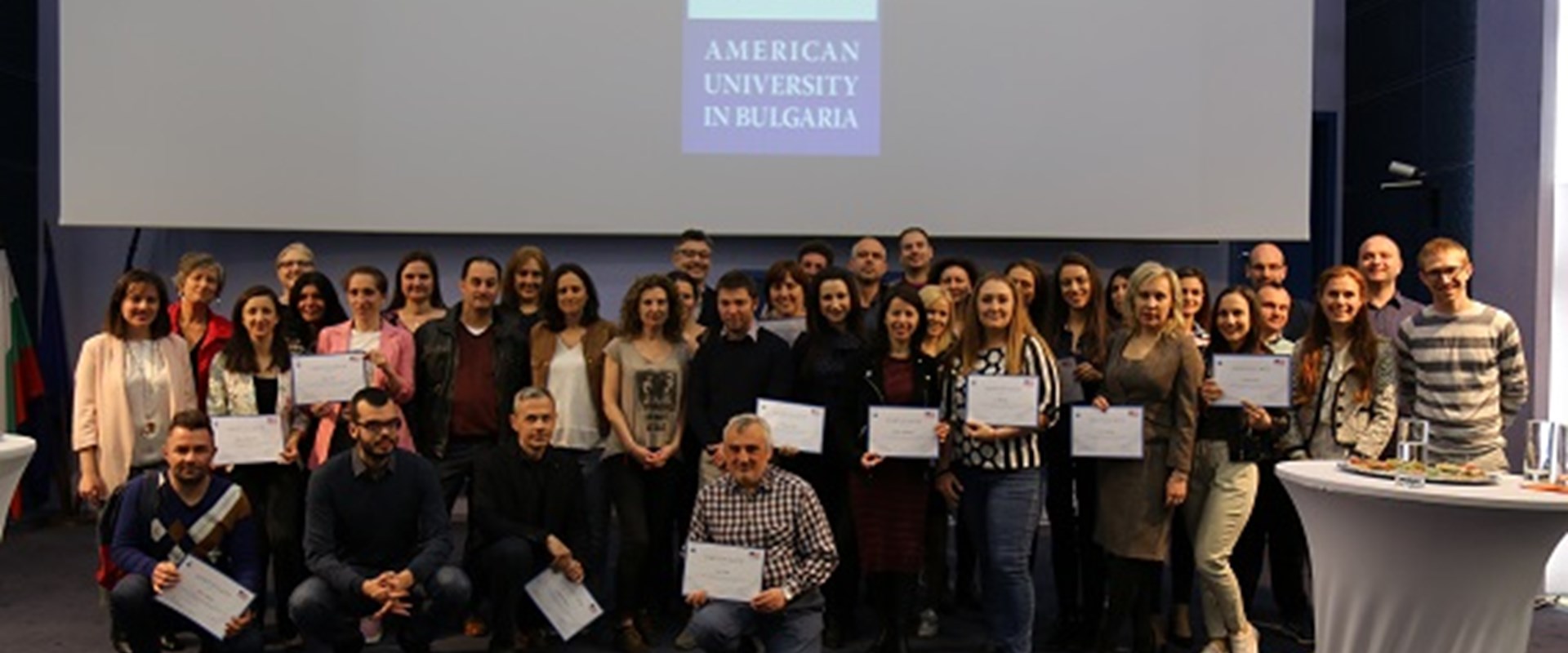
Innovation and Education Sparked this Year’s Hackathon at AUBG
Students from The Hub club organized the second hackathon at AUBG on the weekend of March 23-25. More than 70 students from the university and all over the country took part in the challenge to create a software product on the topic of Innovation and Education.
If you are a fan of the AUBG StartUp conference, but you are more of a tech-soul, HackAUBG is the place to be. Students from The Hub club organized the second hackathon at AUBG on the weekend of March 23-25. More than 70 students from the university and all over the country took part in the challenge to create a software product on the topic of Innovation and Education. All participants were divided into teams of two to five people, with no more than one senior developer per team. They competed for a prize fund of 7,000 BGN provided by sponsors and partners, among which were companies like SumUp, ScaleFocus, SiteGround, Documaster, Scyscanner, Centroida and others. Participants were given the topic and a weekend to come up with, code and present a viable software product in front of the jury. Its members this year were AUBG alumnus Mihail Mikov (’09), AUBG professors Arthur Pantelides and Vladimir Georgiev, Mihail Valkov of Telerik Academy and Yavor Kiryakov, Head Manager at University for Kids Foundation. As well as from the organizers, all participants could use the help of mentors to finish their projects. “Each sponsor company sends one mentor that could help them with technical questions,” said Boris Angelov, vice-president of The Hub. “We hope that participants will learn valuable lessons and have fun during the challenge. That is why we aimed at attracting industry professionals.” “Creating a community around the software industry is certainly a great experience for the students, and the most valuable benefit to future professionals,” said Mikov, who apart from his jury duties also served as a mentor from Skyscanner. The AUBG alumnus is also a part-time professor teaching one-credit courses in web technologies at the university. Mikov thought some teams had very ambitious projects that were rather hard to conduct, but was still happy to see students pushing their limits. “Such competitions are a way to experiment and see what you shouldn’t do when you pitch your project for a company. It gives you enough freedom to explore outside the classroom,” he said. At the final presentations the audience had the chance to see various projects – from an educational game, virtual classroom, language learning app, to an IT network website, all created by IT enthusiasts or professionals of different ages and backgrounds. Nevertheless, the jury could only choose three teams to take home the big prizes. The winners of this year’s hackathon were the O(n!) team with Studify – an interactive platform that connects students and professors. Second place went to Aftermath and Vedu – a platform that transforms education with virtual reality lessons, while third place went to Scanio for their language learning app Flop. Story and photos by Nadezhda Yankulska
